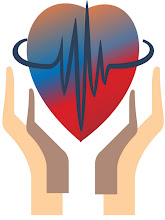http://www.cancer.gov/newscenter/tip-sheet-cancer-myths
Myth: Antiperspirants or deodorants can cause breast cancer.
Fact: There's no conclusive evidence linking the use of underarm antiperspirants or deodorants with breast cancer, according to the National Cancer Institute.
Some reports have suggested that these products contain harmful substances such as aluminum compounds and parabens that can be absorbed through the skin or enter the body through nicks caused by shaving. No clinical studies have yet given a definitive answer to the question of whether these products cause breast cancer. But the evidence to date suggests these products don't cause cancer.
If you're still concerned that your underarm antiperspirant or deodorant could increase your risk of cancer, choose products that don't contain chemicals that worry you.
Myth: Microwaving plastic containers and wraps releases harmful, cancer-causing substances into food.
Fact: Microwave-safe plastic containers and wraps don't leak chemicals into your food.
But the Food and Drug Administration (FDA) says plastic containers not intended for use in the microwave could melt and potentially leak chemicals into your food. So avoid microwaving containers that were never intended for the microwave, such as margarine tubs or whipped topping containers.
Check to see that any container you use in the microwave is labeled as microwave-safe.
Myth: People with cancer shouldn't eat sugar, since it can cause cancer to grow faster.
Fact: Sugar doesn't make cancer grow faster. All cells, including cancer cells, depend on blood sugar (glucose) for energy. But giving more sugar to cancer cells doesn't speed their growth. Likewise, depriving cancer cells of sugar doesn't slow their growth.
This misconception may be based in part on a misunderstanding of positron emission tomography (PET) scans, which use a small amount of radioactive tracer — typically a form of glucose. All tissues in your body absorb some of this tracer, but tissues that are using more energy — including cancer cells — absorb greater amounts. For this reason, some people have concluded that cancer cells grow faster on sugar. But this isn't true.
Myth: Good people don't get cancer.
Fact: In ancient times illness was often viewed as punishment for bad actions or thoughts. In some cultures that view is still held. If this were true, though, how would you explain the 6-month-old or the newborn who gets cancer? These little ones haven't been bad. There's absolutely no evidence that you get cancer because you deserve it.
Myth: Cancer is contagious.
Fact: There's no need to avoid someone who has cancer. You can't catch it. It's OK to touch and spend time with someone who has cancer. In fact, your support may never be more valuable.
Though cancer itself isn't contagious, sometimes viruses, which are contagious, can lead to the development of cancer. Examples of viruses that can cause cancer include:
■Human papillomavirus (HPV) — a sexually transmitted disease — that can cause cervical cancer and other forms of cancer
■Hepatitis C — a virus transmitted through sexual intercourse or use of infected intravenous (IV) needles — that can cause liver cancer
Talk to your doctor about ways to protect yourself from these viruses.
Please visit this site for up to date information from the authorities: http://www.cancer.gov/newscenter/tip-sheet-cancer-myths
Thursday, April 29, 2010
Subscribe to:
Post Comments (Atom)





No comments:
Post a Comment